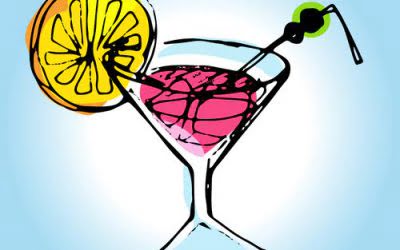Nicotine is highly addictive, and its use through smoking, vaping, or e cigarettes can introduce harmful substances into the body, such as heavy metals and cancer-causing agents. Some commonly inhaled substances include glue, paint thinners, correction fluid, felt tip marker fluid, gasoline, cleaning fluids and household aerosol products. Due to the toxic nature of these substances, users may develop brain damage or sudden death. You can support these efforts by donating to Outreach International, so we can bring effective and lasting solutions to all the communities where we work. Understanding these causes is essential to creating effective, long-term solutions.
- Seven Hills Hospital helps individuals struggling with alcohol addiction build a strong foundation for lasting recovery.
- Alcohol abuse is a serious and widespread issue that affects individuals, families, and communities around the world.
- Once you’ve been addicted to a drug, you’re at high risk of falling back into a pattern of addiction.
- These drugs can cause severe intoxication, which results in dangerous health effects or even death.
- Eventually, you may start drinking more to stave off withdrawal symptoms, leading to a cycle that is difficult to break without professional help.
- Blackouts often lead to risky behaviors like driving or unsafe interactions, despite outward functionality.
Other chronic diseases
Current research points to health risks even at low amounts of alcohol consumption, regardless of beverage type. Drinking too much alcohol can increase the risk of physical trauma, including head injuries that may result in Alcoholics Anonymous brain damage. This could range from stumbling and hitting your head to blacking out on pavement to being hit during a fight or assault. This is because alcohol affects the hippocampi, two structures in the brain that help you form new memories. Yes, alcohol can accelerate the progression of memory conditions like dementia.

Understanding OCD Rumination: Symptoms, Causes, and Treatment Options
Some people who’ve been using opioids over a long period of time may need physician-prescribed temporary or long-term drug substitution during treatment. Examples include methylenedioxymethamphetamine, also called MDMA, ecstasy or molly, and gamma-hydroxybutyric acid, known as GHB. Other examples include ketamine and flunitrazepam or Rohypnol — a brand used outside the U.S. — also called roofie. These drugs are not all in the same category, but they share some similar effects and dangers, including long-term harmful effects.
Living a Substance-Free Life
It is a form of talk therapy that is beneficial for most mental health and substance use disorders. Coping with a mental health disorder may be the reason you start drinking alcohol. While this may work temporarily, eventually, your mental health symptoms will likely worsen, or https://mediumslateblue-crocodile-140223.hostingersite.com/effects-of-alcohol-how-alcohol-thins-your-blood/ you may develop new symptoms. Anxiety and depression are common mental illnesses that co-occur with alcoholism. Continuing to drink alcohol is not the only reason people develop alcoholism.
Understanding these signs can help individuals and their loved ones identify addiction early and seek appropriate help before the condition worsens. The consequences of opioid use disorder are particularly severe, often leading to harmful consequences such as disability, relapse, and even death. Whether the addiction involves legal or illegal substances, the potential for harm is significant.
Alcohol Addiction Treatment Options

Substance use is a multifaceted issue that has plagued societies for centuries. Whether it’s alcohol, why do people become alcoholics tobacco, prescription drugs, or illicit substances, the misuse of these substances has wideranging effects on individuals, families, and communities. This article delves into the complex world of substance use, examining its root causes, the consequences it carries, and potential solutions to address this pervasive issue. Effective treatment for substance addiction often involves a combination of counseling, medications, or both. Combining medicines with counseling gives most people the best chance of success.
- Between the white matter and gray matter loss, heavy alcohol drinking can lead to generalized volume loss across the whole brain.
- But as you continue to drink, you become drowsy and have less control over your actions.
- Changes in the brain make it difficult to reduce or stop alcohol use, but treatment can help.
When Should Alcohol Withdrawal Be Treated by Medical Professionals?
Production goals may not be met, and there could be a lot of missed deadlines. Employees who can’t meet expectations and behave erratically affect the company’s entire culture. These signs don’t mean an employee has an alcohol use disorder automatically.
What Is the Link Between Alcohol and Memory Loss?
- A qualified treatment provider can assist you in overcoming your addiction and maintaining your sobriety over the long term.
- If you’re not ready to approach a health care provider or mental health professional, help lines or hotlines may be a good place to learn about treatment.
- Alcohol addiction also negatively affects the loved ones and caregivers of each person with this disorder—negatively impacting an incalculable number of human lives.
- Support systems for families and communities affected by alcohol abuse are also crucial in addressing the broader impact of this issue.
- Some drugs, such as opioid painkillers, have a higher risk and cause addiction more quickly than others.
- Theories suggest that for certain people drinking has a different and stronger impact that can lead to alcohol use disorder.
Biological, physical, psychological, and environmental factors can also contribute to the disease. Having one or two standard drinks may not sound like a lot, but it is enough to alter brain functioning and impair judgment. Drinking more than the standards for a long time puts you at a higher risk of developing alcoholism.

Alcohol addiction can be overcome with help from a comprehensive, professional treatment program consisting of a variety of scientifically validated supports and interventions. Run by caring and experienced staff, these programs offer effective, specialized services aimed at combating alcohol addiction. Treatment options, including medication-assisted treatment and behavioral therapies, offer hope for recovery and regaining control over one’s life. There are resources available to guide you on your journey towards a healthier, alcohol-free life.

Comments ( 0 )